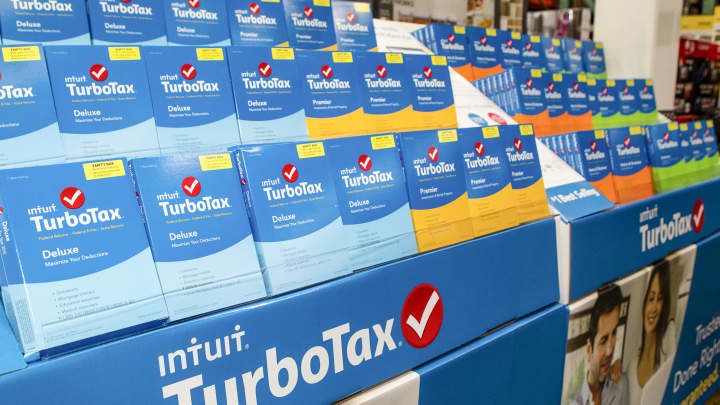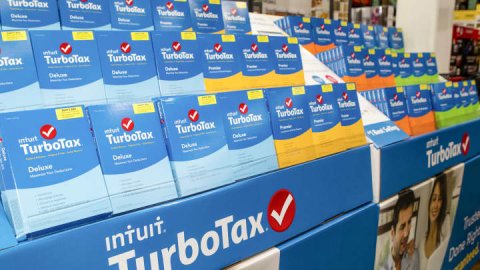
WASHINGTON — A Federal Trade Commission judge on Friday issued an against , the maker of the popular tax filing software TurboTax, saying the company deceived consumers with ads for so-called "free" tax products.
Intuit violated Section 5 of the FTC Act by promoting "free" tax products and services for which many were ineligible, according to Chief Administrative Law Judge D. Michael Chappell. The full commission will review the judgment before delivering a final decision.
Intuit will appeal the ruling, said Rick Heineman, a spokesperson for the company.
"It's no surprise that a case the FTC brought before itself, argued with FTC-employed lawyers, all before an FTC-employed judge got a ruling in favor of the FTC," Heineman said. "You can't make this stuff up — it's a flawed system and a groundless ruling."
Read more of CNBC's politics coverage:
Sam Levine, director of the FTC's Bureau of Consumer Protection, said the judge's ruling is completely objective.
"In recent years, FTC staff has lost more cases than we've won before the Administrative Law Judge, who has complete independence from the rest of the agency," Levine told CNBC. "What Intuit is really trying to do is distract from a meticulous and thorough opinion that decisively finds they've been deceiving the public for years."
Chappell also issued a cease-and-desist order out of "cognizant danger of a recurring violation" against Intuit, which restricts the company from advertising goods and services as free unless it's free to all customers, a majority of U.S. taxpayers or clearly states the limits. The order must be shared with relevant parties for the next 20 years, according to the FTC.
Shares of Intuit closed down 0.55% Friday after earlier hitting a 52-week high.
In a , the FTC said millions of taxpayers, including those who receive a certain 1099 form from the IRS or earn farm income, did not qualify for TurboTax's "free" services. About two-thirds of filers could not use the free service in 2020, the complaint said.
Intuit entered into an agreement with all 50 states and the District of Columbia in 2022 to pay $141 million to users who paid for when the filing software should have been free, a deal affecting about 4.4 million consumers.
prohibits companies from engaging in misleading acts or practices that can cause substantial injury to consumers.




